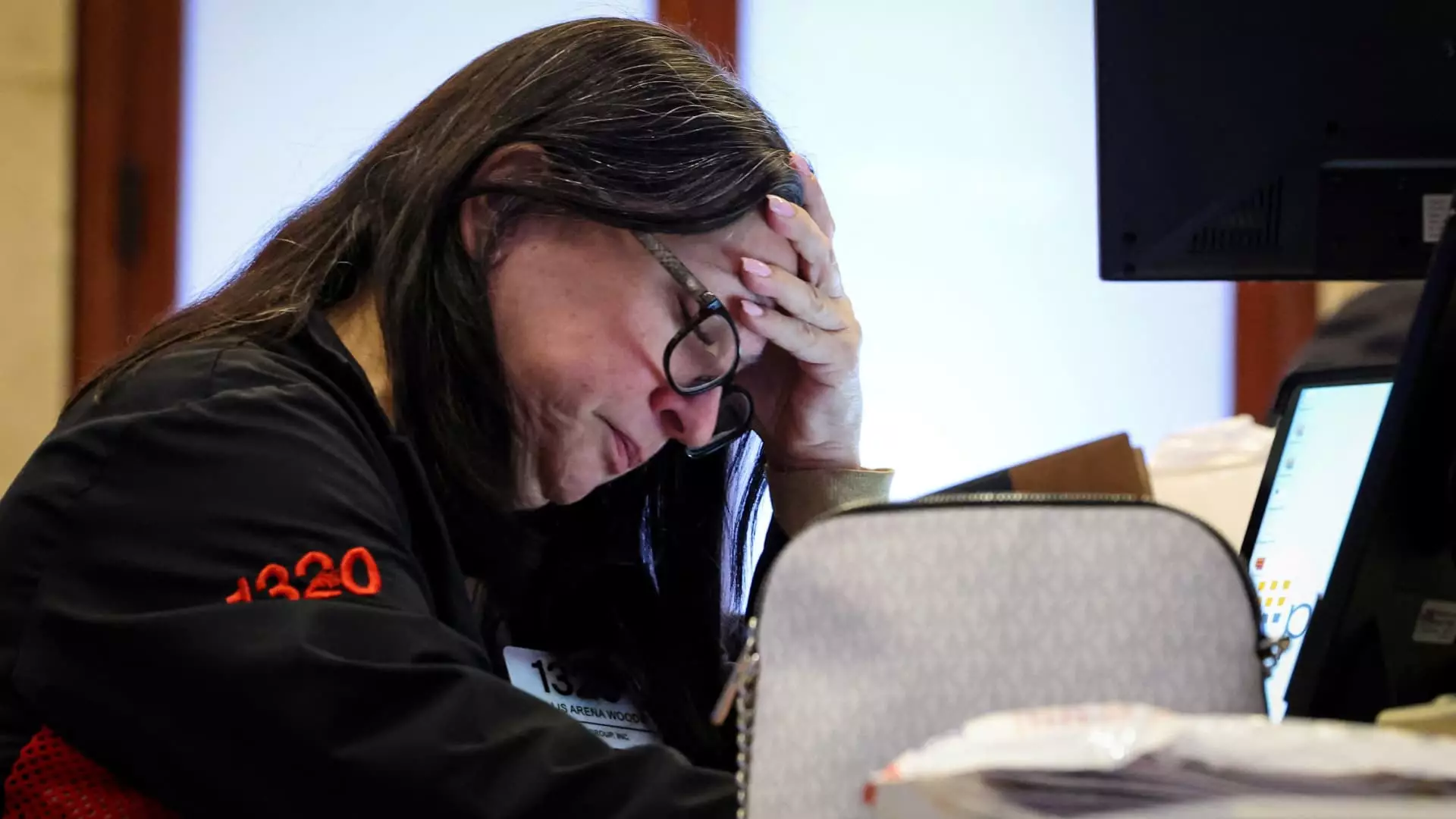The ongoing trade conflict initiated by President Donald Trump has intensified anxieties about the state of the American economy. Many seasoned economists, including Torsten Slok of Apollo Global Management, predict a precarious future that may lead to stagflation. Such a scenario could be detrimental to both the working class and the investment community as a whole. The deeply concerning aspect of this trade war is not just its immediate implications but its broader, systemic risks that have the potential to reshape the economic landscape for years to come.
Slok’s insights highlight a singular narrative: the pronounced downside risks overshadow any optimistic outlook. While trade wars are often framed as necessary structural reforms to rectify economic injustices, the immediate and tangible impact is one of peril. This is not merely an economist’s forecast; it’s a wake-up call to recognized consequences that could materialize due to misguided policies, myopic leadership, and retaliatory maneuvers by global trading partners.
Erosion of Consumer Confidence
One critical sector that mirrors overall economic sentiment is consumer confidence. Recent declines in consumer trust are directly correlated with rising inflation and job insecurity. Businesses are already grappling with an increasing cost of goods due to tariffs, which inevitably trickles down to consumers. The result? Heightened anxiety among families and individuals who are now forced to pay more for everyday needs. In the era of the self-proclaimed American economic renaissance, it seems ironic that the average consumer feels increasingly unsettled and financially exposed.
The recent statistics have shown a depressed domestic spending trend, signaling that consumers are tightening their belts in anticipation of worse economic conditions ahead. When consumers hesitate to spend, this leads to an undercurrent of stagnation in the economy—contradicting the administration’s optimistic projections.
Stock Market Volatility: A Dangerous Precipice
The ups and downs of the stock market often serve as a barometer for broader economic health. Recent fluctuations have spurred concerns, with significant losses in major indices. Slok elaborated that the S&P 500 could potentially see a staggering $6 trillion loss as fears around Trump’s trade policies deepen. Notably, the “Magnificent Seven,” which includes tech giants like Apple and Amazon, suffered tremendous losses that are alarming. A significant proportion of their revenues are derived from international markets, and with tariffs escalating, investors are increasingly apprehensive about their future earnings potential.
The tech-heavy Nasdaq Composite falling into bear market territory serves as an alarming emblem of this volatility. If the creators of transformative technologies can succumb to such whims, then the broader economy may be on shaky ground. The notion of economic strength touted by current leadership clashes starkly with visible market realities.
Long-term Risks and Global Relations
Beyond the fluctuating stock prices and immediate economic extremities lies a more insidious risk: the long-term implications for U.S. global standing. Economic isolationism may provide short-term political gains, but it undermines America’s foundational ethos of global partnership and cooperation. Trade deficits, currency manipulations and emerging markets pulling away from American influence could redefine international economic norms detrimental to American interests.
With countries like China retaliating decisively against U.S. tariffs, the implications risk deepening economic rifts. The resulting schisms in diplomatic relations can lead to isolationist foreign policy backlash. Countries are weighing their decisions based purely on economic prudence, leading to a realignment that could impede the U.S. role as a central player in global trade networks.
Political Dimensions: A Mixed Legacy
Trump’s steadfast commitment to his economic policies, as he states, raises more questions than answers. What legacy will such policies ultimately leave behind? While political capital may be gained in the short term, the potential for long-term economic ramifications feels neglected. As center-right liberal ideals advocate for a balanced approach to economic growth—wherein trade is viewed as a collaborative effort—the current administration seems to stray from that tenet.
American exceptionalism must not come at the expense of pragmatic policies that promote growth and stability. With global allies eyeing these developments with skepticism, the very identity of the United States as a beacon of economic prosperity stands at a crossroads, raised by policies fraught with uncertainty and unintended consequences.

